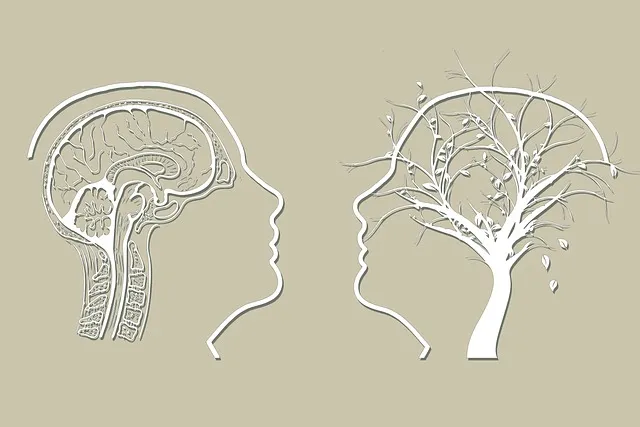The Kaiser Permanente behavioral health center in Louisville promotes mental wellness through innovative self-assessment tools and a Mental Wellness Podcast Series. Their approach combines professional support with personal introspection, empowering individuals to take charge of their mental health early on. The center develops comprehensive, user-friendly self-assessment tools that cover mood, anxiety, stress, sleep, and overall well-being, backed by data-driven impact evaluation methods. These tools, coupled with tailored trauma support services, ensure accessible and impactful resources for a diverse range of users.
Mental wellness self-assessment tools play a pivotal role in early intervention and prevention strategies, especially within healthcare settings like the Kaiser Permanente Behavioral Health Center Louisville. This article explores the development of such tools, highlighting their significance, key features, and effective implementation processes. We delve into how these assessments can be tailored to meet specific populations’ needs, measured for impact, and continuously improved. By focusing on evidence-based practices, the goal is to enhance mental health awareness and accessibility at Kaiser Permanente Louisville and beyond.
- Understanding the Need for Mental Wellness Self-Assessment Tools at Kaiser Permanente Behavioral Health Center Louisville
- Key Features and Components of an Effective Self-Assessment Tool
- Development Process: From Concept to Implementation
- Measuring Impact and Continuous Improvement Strategies
Understanding the Need for Mental Wellness Self-Assessment Tools at Kaiser Permanente Behavioral Health Center Louisville

At Kaiser Permanente Behavioral Health Center Louisville, recognizing the importance of mental wellness has been a cornerstone of their mission. With a growing awareness of the impact of mental health on overall well-being, there is a pressing need for accessible and effective self-assessment tools. These tools play a pivotal role in empowering individuals to take charge of their mental health journey. By offering easy-to-use resources, such as Emotional Intelligence assessments or Anxiety Relief guides, the center aims to facilitate early intervention and promote proactive mental wellness management.
The integration of these self-assessment tools into Kaiser Permanente’s services is a strategic move to bridge the gap between professional support and personal introspection. With a focus on holistic care, the behavioral health center Louisville encourages individuals to take an active role in understanding their emotional states and seeking appropriate assistance. This approach, coupled with the production of engaging Mental Wellness Podcast Series, ensures that valuable insights and strategies reach a wider audience, fostering open conversations around mental wellness.
Key Features and Components of an Effective Self-Assessment Tool

An effective mental wellness self-assessment tool should incorporate several key features and components to ensure it is both comprehensive and user-friendly. Firstly, it must be designed with simplicity in mind, allowing users to navigate easily through various sections that cover different aspects of their mental health. This includes questions or assessments related to mood, anxiety, stress levels, sleep patterns, and overall well-being, mirroring the services provided at Kaiser Permanente behavioral health center Louisville. The tool should also promote self-reflection by encouraging users to explore their thoughts, feelings, and behaviors, fostering Mental Health Awareness.
Additionally, incorporating interactive elements such as scales, rating systems, or journaling prompts can enhance user engagement. These components can help individuals gauge their current state of mental wellness and track progress over time, thereby aiding in Self-Esteem Improvement and Coping Skills Development. Visual representations like graphs or charts can further illustrate trends, making it easier for users to understand their mental health landscape and identify areas that require support.
Development Process: From Concept to Implementation

The development process of a mental wellness self-assessment tool begins with a conceptual phase at the Kaiser Permanente behavioral health center Louisville. Here, experts in behavioral health, clinical psychologists, and user experience designers collaborate to identify key areas where such a tool could provide significant benefits. They consider the specific needs of their community, drawing insights from research and best practices within the field of mental wellness. This initial stage involves extensive brainstorming and market research, aiming to create an innovative yet practical solution for self-assessment.
Once the concept is solidified, the team delves into the implementation phase. This includes designing the tool’s user interface, ensuring it is intuitive and accessible. They incorporate various Self-Awareness Exercises tailored to address common mental health challenges like Anxiety Relief and Stress Management. The tool’s algorithms are developed to provide personalized feedback based on user input, guiding individuals toward appropriate resources or interventions if needed. Regular testing and iterations follow to refine the tool’s effectiveness and usability, ultimately aiming to deliver a comprehensive yet user-friendly mental wellness self-assessment experience comparable to that offered by leading Kaiser Permanente behavioral health centers nationwide.
Measuring Impact and Continuous Improvement Strategies

Measuring the impact of mental wellness self-assessment tools is a critical step in ensuring their effectiveness and relevance. At the Kaiser Permanente behavioral health center Louisville, we employ robust evaluation methods to assess user engagement, satisfaction, and the tangible improvements in mental health outcomes. By collecting qualitative and quantitative data through surveys, interviews, and analytics on tool usage, we gain valuable insights into what works and where enhancements are needed. This data-driven approach allows us to iteratively refine our self-assessment tools, ensuring they remain aligned with the evolving needs of both healthcare providers and individuals seeking mental wellness support.
Continuous improvement strategies are integrated into the development process to foster adaptability and responsiveness. Similar to the Burnout Prevention Strategies for Healthcare Providers and the Mental Wellness Podcast Series Production, we leverage feedback loops to quickly address challenges and incorporate new research findings. Additionally, by offering tailored trauma support services, we ensure that our tools are sensitive to diverse experiences, making them accessible and impactful for a wide range of users. This dynamic approach enables us to create truly transformative mental wellness resources at the Kaiser Permanente behavioral health center Louisville.
The development of mental wellness self-assessment tools is a pivotal step forward for organizations like the Kaiser Permanente Behavioral Health Center in Louisville. By incorporating key features such as accessibility, user-friendliness, and evidence-based content, these tools can empower individuals to take charge of their mental health. The implementation process, from conceptualization to execution, requires careful planning and collaboration among experts. Continuous improvement through feedback loops and data analysis ensures the tools remain relevant and effective in addressing evolving mental health needs. Through such initiatives, Kaiser Permanente Louisville is fostering a culture of mental wellness, promoting self-care, and ultimately enhancing the well-being of its community.






